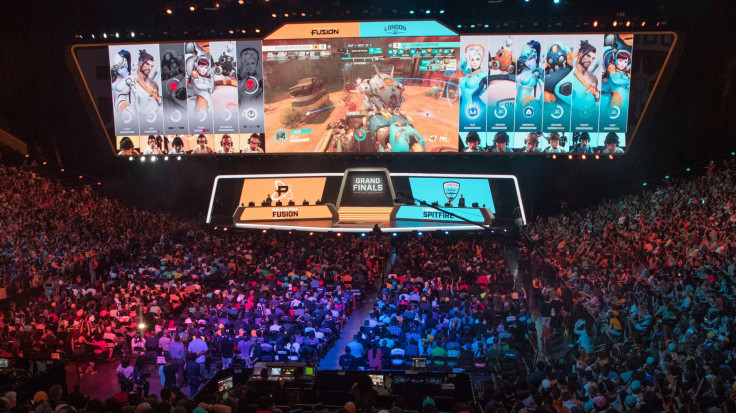
On November 8, 2023, Overactive Media made a groundbreaking announcement, terminating its team participation agreement in the Overwatch League and marking the beginning of the end for the esports league. Activision Blizzard paid approximately $6 million in termination fees, signalling a shift that prompts a critical examination of the competitive landscape within the esports industry.
In 2017, franchise teams invested $20 million each for a slot in the Overwatch League, with eight expansion slots later sold for $35 million each. However, with the league's impending closure, Activision Blizzard is compensating teams with a total of about $120 million. Rumours of a new league emerging, this time as an open circuit rather than a closed franchise system, add complexity to the unfolding narrative.
An open system allows for varying teams each year, fostering a pathway from community-level to professional teams. Conversely, a closed system, typified by the franchise model, locks in a set number of teams irrespective of previous standings.
Esports tournament organisers often adopt the franchise system for its stability, providing team owners with revenue-sharing opportunities. Riot Games' 2019 announcement of a 50 per cent revenue share in the LoL regional pro-league, similar revenue-sharing models were implemented in games like Rainbow Six Siege and Rocket League, fostering financial stability for participating teams.
The introduction of revenue-sharing schemes, such as Riot Games' 50 per cent revenue share and exclusive item sales in Rainbow Six Siege, showcases the financial benefits associated with the franchise system. Rocket League's esports shop in 2019, sharing revenue from branded items with participating teams in the RLCS, further solidified the appeal of this model.
Transitioning to New Directions
The Overwatch League's collapse prompts reflection on the esports industry's trajectory. While the franchise system offers stability and revenue-sharing, recent developments suggest a shift towards open circuits. As teams explore alternatives, including rebranding and relocation, the industry is at a crossroads.
In the wake of the Overwatch League's demise, other key players in the esports industry are reevaluating the franchise model. Valve's decision to end its closed competitive circuit for CS:GO and DOTA 2 reflects a growing sentiment that the franchise/closed system has created a "stranglehold" on the events calendar, diminishing innovation and excitement within the ecosystem.
The semi-franchised league structure in CS:GO, where teams participate through invitations in partnered leagues administered by ESL and BLAST, is now going to be possibly restructured. Critics argue that this system limits opportunities for new entrants, as players frequently switch teams, creating a barrier for emerging talent. However, proponents of the franchise system highlight its role in providing financial stability to teams and owners.
ESL's announcement of a new revenue-sharing model aligns with Valve's vision for an open competitive circuit. Ulrich Schulze, SVP of Game Ecosystems at ESL FACEIT Group, confirmed this shift on X (formerly known as Twitter), emphasising the move toward sharing revenue with participating teams rather than solely with partnered teams.
We will shift our tournament revenue sharing model from selected teams to all teams participating starting in 2025. We will announce more details on this in the coming months.
— Ulrich Schulze (@theflyingdj) August 3, 2023
Riot Games acknowledged the limitations of the franchise system in traditional sports in its strategy insight post early this year and opted for a different approach with VALORANT. Instead of requiring franchise fees, Riot invited teams to submit applications, selecting them based on specific criteria. Teams retain their spot by investing significantly in marketing and player salaries, ensuring a more dynamic and inclusive ecosystem.
The Future of Competitive Esports
As the esports landscape undergoes significant changes, Riot Games' strategy for VALORANT points toward a potential solution. The introduction of the PREMIER MODE in the new competitive ecosystem aims to strike a balance between open and closed systems, fostering innovation and excitement.
This model, focused on sustainable engagement and operation, contrasts with the struggles faced by the Call of Duty League franchise, where in 2022, the Los Angeles Thieves team, despite winning the CDL champs, announced a loss of about $2.5 million and this made the team let go of all its players for the 2023 CDL roster. This was revealed in a podcast by popular figure and company CEO, Matthew "Nadeshot" Haag and he went further to state that it was an unsustainable model.
With the esports winter impacting organisations, leading to rebranding, relocation and exits from certain titles, it is clear that the industry requires innovation and excitement. While the future remains uncertain, Riot Games' strategy offers a compelling model that shifts away from traditional franchise fees, focusing on marketing and operational investments.
The emerging trend suggests that a harmonious mix of open and closed systems is key to maintaining ongoing excitement in the dynamic world of competitive esports.

Meet Stephen is a passionate Esports and Gaming enthusiast hailing from Nigeria. His fascination extends beyond the virtual battles to encompass the intricate realms of policy, business, and regulations within the gaming industry. For insights into the dynamic intersections of gaming and its broader landscape, Stephen welcomes your thoughts and inquiries. Connect with him at stephenojo077@gmail.com and delve into the multifaceted world where gaming meets policy and business.







